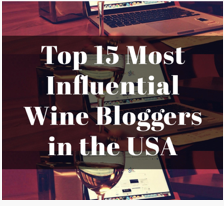In this space back in May, 2016, I published an article about the recently filed lawsuit against the online flash seller, Wines ’Til Sold Out (WTSO). The article, which I thought was fairly innocuous at the time, has turned out to be my most visited post in the nearly six years that I have been publishing this blog.
And second place is way behind.
Due to the traffic that the post received, I have tried for sometime to publish a follow-up to that initial article. I spent countless hours burning the Google oil, trying to get an update. I called the law firm that had filled the class-action lawsuit several times—no response. I even called Wines ’Til Sold Out numerous times, but they would not respond even though I touted myself as a “journalist” (in retrospect, that is perhaps precisely why they did not respond).
Throughout the subsequent 20 months from that first post, I was diligent on a weekly basis, searching in vain (it was somewhat gratifying, though, that my original post would inevitably turn up as one of the top two in a Google search).
Then, just a few days ago, I received this:

A legal notice outlining the settlement that had been reached.
A quick background on WTSO:
- WTSO is perhaps the original “wine flash site.” They offer a single wine at a time, at a discount* until it is sold out, when they then offer another wine.
- The site is at least tangentially connected to Jonathan Newman, who was the former Chairman of the Pennsylvania Liquor Control Board (PLCB). At that post, Mr. Newman started the “Chairman’s Selection” program, which offered wines at fairly substantial discounts. It is fairly safe to say that the WTSO business model is based on the Chairman’s Selection model.
- That model is fairly straightforward: the buyer (be it the PLCB or WTSO) agrees to buy the entire stock of a particular wine at an extreme discount. The winery, perhaps in need of cash or looking to move an under-performing vintage, readily agrees, which creates a win-win of sorts.
- My personal feelings and interactions with Mr. Newman aside, I feel I have benefitted from both WTSO and the PLCB Chairman’s Selection Program (which continued even after Mr. Newman was forced out—another story entirely).
The lawsuit:
- In early 2016, a group of plaintiffs filed suit against WTSO with two main complaints:
- WTSO would acquire wine under labels that were not available anywhere else—either via the internet or an actual winery—and would fabricate a Suggested Retail Price (SRP) that would make it appear as though WTSO’s offered price was a substantial discount.
- On wines not produced or bottled specifically for WTSO, the plaintiffs claimed that WTSO artificially inflated the SRP to once again make it seem that the offered price was a better “deal” than perhaps it actually was.
- The plaintiffs, in conjunction likely with their lawyers, decided to make the case a class action lawsuit, thus involving many more litigants and considerably more potential dollars.
Thus, at the base of this suit is the difference between the stated Suggested Retail Price and the actual price for the wine being offered by WTSO.
As I stated in my previous article about this suit, despite buying hundreds of bottles from WTSO over the years, I was never swayed by the amount of “savings” claimed by WTSO since before each purchase I made, I would conduct a fairly cohesive internet search on the specific wine.
Apparently, not everyone does that, hence the lawsuit.
On the postcard I received, it indicated that there would be a credit issued for wine purchased from WTSO “at any point from March 15, 2010 to November 1, 2016.” Those credits would vary between $0.20 and $2.25 a bottle, but the postcard did not any further, stating that further information was available at www.winesettlement.com.
Before I headed over to the website, I checked Cellar Tracker to see how many bottles I had purchased from WTSO during that period.

425.
After some quick math (I used the median of $1.225), I figured I would be receiving somewhere around $500 from WTSO, and even though I really did not feel defrauded in any way by the company, 500 bucks is 500 bucks.
Thus, I went to the website and registered.
There I read quite a bit about the case and the settlement. A few important points I gleaned:
- WTSO does not admit to any liability or “wrongdoing.”
- The credits are good for one year and can only be used in increments of $2 per bottle.
- The total amount set aside for credits is $10.8 million.
Then I started to investigate a little further and discovered that there is a fairly elaborate process to calculate the amount of credit per bottle received. Simply put, for most bottles, there is a $0.20 credit. For the select few (mostly brands created for or only available through WTSO), the larger credits would be issued based on the price paid for the bottle.
So I calculated.
$122.80
Not five hundred bucks, but still better than a sharp stick in the eye.
Then I realized three rather important facts:
- WTSO does not ship to Texas, thus I am eligible to receive 50% of the credits in cash ($61.40).
- The original plaintiffs each received $2,500 for their assistance in the lawsuit.
- The law firm representing the clients is due to receive $1.7 million.








Did I also read that there are specific wines identified on a list or two? …so that not every purchase during that time qualifies for credit.
LikeLike
The way I read it, every bottle purchased receives at least a $0.20 credit. There are then two lists of wines that, if purchased, would receive from $0.50 to $2.25 credit per bottle.
LikeLike
Hmmm, I might be eligible for something like $8.60.
LikeLike
I hope you responded to the class action then!
LikeLike
Ugh. The lawyers. Congrats on your $61 windfall, though!
LikeLike
I know, right? I am trying to decide what to do with that fat windfall. Maybe half a case of Yellow Tail?
LikeLiked by 1 person
If it weren’t for the lawyers knowing to get anything back at all.
LikeLike
so helpful plaintiffs receive $2500, while lawyers continue getting fat at everyone’s expense with $1.7M. This is broken. But on a bright side, your math with the last “two facts” is impeccable.
LikeLike
Ha! I added a third fact (the $2500), but neglected to change the lead-in. As for the lawyers, it really is astounding. Did they, perhaps agree to the settlement because of the fat paycheck they received?
LikeLike
The sheer ability to sue everything and everyone for absolutely no reason at all is simply screwed up and wrong. I’ll just stop myself right here before this comment becomes a nastygram…
LikeLiked by 1 person
That was a bit too snarky. Expect a call from my lawyer.
LikeLiked by 1 person
One can oppose a class-action on variety of grounds. One of them being that the total amount was inadequate. Another ground could be that the attorneys fees were excessive. We don’t know what the attorneys have done but they have to file a fee petition to the court.
LikeLike
Interesting to ponder on who was really behind the lawsuit…
LikeLiked by 1 person
Same question here.
LikeLike
Every time we buy wine there is the potential that we have paid more than we should. Every store I can think of off the top of my head has their own label that is difficult to research and garner information about. Every store I can think of tells you how much you will save when purchasing their wines “on sale” as compared to the regular price – but none of these stores ever actually sell the wines at said regular price. And all of this for .20 per bottle. The lawyers definitely won this one.
LikeLike